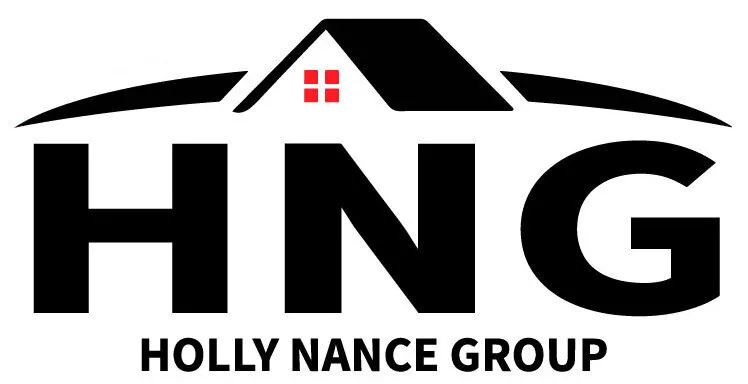Moving for a new job or life change often means you need to sell your home quickly—and ideally at a good price. According to the U.S. Census Bureau, the necessity for speedy home sales is something millions of Americans face annually due to similar circumstances. Immediate feelings of stress and tightening timelines can make this process seem daunting.
However, there are proven strategies and expert tips that can make this transition smoother. The process begins with careful preparation: from decluttering spaces so potential buyers can easily envision themselves living there, to deep cleaning every corner of your home. As we dive into these essential steps, it becomes clear that preparing well not only boosts your home’s appeal but also alleviates some of the anxiety tied to relocating.
When selling your home due to relocation, it’s crucial to assess the urgency of your move and set a realistic timeline for the sale. Consider working with a trusted real estate investor like Holly Nance Group, who can provide a cash offer and facilitate a quick closing process, allowing you to focus on your new opportunity without the added stress of traditional selling methods.

Reasons for Selling Due to Relocation
Relocation often strikes like a lightning bolt. You may find yourself needing to sell your home quickly because life has thrown some unexpected changes your way. Job opportunities frequently top the list; you might receive an enticing offer that demands your presence in another city or state. This isn’t just about a better paycheck; it’s also about career growth, personal ambition, or even just the thrill of new experiences. When a job requires you to move fast, selling your house becomes paramount—if you don’t act quickly, you risk missing out on that dream position.
Moreover, family obligations can also force a sudden need for change. Perhaps there’s a pressing reason to be closer to relatives, whether it’s to support aging parents or join family after a significant event, such as a wedding or loss. Emotions run high during these times, and having a stable home base nearby can be essential. Selling your home allows you to streamline that transition, providing you with the ability to settle into a new area without carrying the emotional weight of an unsold property.
Lifestyle changes present another compelling reason for relocation and selling your home. As people grow, their needs evolve: newlyweds might find themselves looking for a larger space; empty-nesters may seek out a cozier setting; whereas recent graduates might head toward urban centers that cater to young professionals. Each of these scenarios represents not just a shift in location but a reimagining of life’s possibilities. Selling your home can facilitate this fresh beginning while also allowing you to adjust financially to your new circumstances.
The urgency of these situations emphasizes the importance of understanding your local real estate market trends, which can significantly impact how quickly and effectively you sell your home.
Recognizing the motivations behind relocations lays the groundwork for effective decision-making in this journey. As you prepare to navigate the steps ahead, it’s crucial to focus on strategies that will enhance the appeal and value of your property.
Preparing Your Home for Sale
Getting your home ready to sell involves careful planning and execution. The first critical step is to declutter and depersonalize your space. This means removing all personal items such as family photos, sports trophies, and excessive decorations. When potential buyers walk through your home, they need to envision their own lives unfolding there, which can be quite difficult when personal belongings overshadow the space. Think of it as creating a blank canvas; with less clutter around, a buyer can more easily imagine their furniture fitting in and their life taking shape within those walls.
After achieving that clean slate, the next step is imperative: deep cleaning your home thoroughly.
Undertaking a deep clean of your entire house is crucial. This process goes beyond just wiping down surfaces or vacuuming floors; it should encompass every nook and cranny. Don’t forget those often-overlooked areas such as garages, basements, and attics. It’s particularly important to scrub fixtures, polish floors, and ensure all surfaces shine. A sparkling home not only looks appealing but also gives potential buyers the sense that the property has been well cared for throughout its life. As you clean, pay attention to any musty odors—these can deter buyers before they even set foot inside.
With a pristine home ready to impress, you might find that professional staging can take the presentation to another level.
Considering professional staging services can make a significant difference in how quickly your home sells—and potentially at what price. An experienced stager knows how to highlight your home’s best features while minimizing its weaknesses. For instance, Joan found success after hiring a staging company; not only did her house look more inviting and spacious, but she saw a staggering 15% increase in her sale price compared to similar homes in her area that hadn’t been staged. Investing in staging might appear to be an extra expense initially, but the returns can be well worth that cost.
Once these essential tasks are complete and your home shines from every angle, it’s time to evaluate its position in the market and explore comparable pricing strategies based on recent sales data and current trends in your area.
Market Research and Pricing

Accurate pricing plays a pivotal role in selling your home both quickly and effectively. You might think that pricing it high will leave room for negotiation, but that can backfire, leading to an extended time on the market. In fact, homes priced too aggressively can deter potential buyers altogether, making it essential to adopt a more strategic approach.
Start your journey with a comparative market analysis (CMA). This tool examines recent sales of similar properties in your neighborhood to give you a clear picture of what the market will bear. By referencing recent listings and sales, you’ll see how each property’s features or lack thereof stacks up against yours. This gives you a deeper understanding of how much buyers are willing to pay.
Local Market Trends
In 2023, homes in suburban areas sold for an average of $400,000, while those in urban settings averaged $350,000 according to data sourced from Zillow. This kind of information isn’t just numbers; it helps reveal patterns in buyer preferences, whether they lean toward larger homes outside the city or prefer the vibrancy of urban living.
Recognizing such trends is crucial because they empower you to set a competitive price while aligning with what local buyers desire. Furthermore, consider seasonal fluctuations, as real estate often behaves like other markets, spiking during certain times of the year. For instance, many families look to buy before summer vacation begins or try to capitalize on tax season refunds.
Understanding these cycles helps you time your listing strategically and price it accordingly. Equipped with this market knowledge, you’ll feel more confident when determining your home’s price point. Moreover, collaborating with an experienced real estate agent can provide invaluable insights tailored specifically to your location and property type.
Choosing a Real Estate Agent

Selecting the correct real estate agent can significantly smooth out the sales process and put more money in your pocket. To begin with, you want to find someone who understands your local market exceptionally well. This person isn’t just a salesperson; they are your partner in this journey and should possess a wealth of knowledge about neighborhoods, pricing trends, and local amenities that could attract potential buyers.
A good agent will not only steer you towards making informed decisions but also carry a strong network of contacts, including inspectors, contractors, and closing attorneys ready to move quickly. It may sound simple, but a well-connected agent saves you valuable time and potential headaches, particularly when you’re balancing moving logistics with selling your property.
1. Research and Referrals
Start your search by tapping into your existing social network. Ask friends, family, or coworkers if they’ve had positive experiences with agents in your area. Personal referrals are invaluable because they often come with anecdotes of firsthand experience—bringing insights into an agent’s negotiation skills, responsiveness, and overall effectiveness.
Remember that each person’s needs differ; it’s essential to align these referrals with your specific requirements. Take note of agents who successfully work with sellers facing similar circumstances to yours, such as relocations or tight timelines.
2. Interview Potential Agents
Once you’ve gathered a list of potential candidates, it’s time for some interviews. Don’t be afraid to ask tough questions; after all, this is your home on the line. Inquire about their sales history in your neighborhood—how many homes have they sold recently? What was the timeframe for each sale? This information helps gauge whether they have relevant experience.
It’s also wise to ask questions like:
- How do you determine the listing price for homes? Their reasoning should reflect market analysis and positioning.
- What platforms do you use to market properties? Effective marketing across multiple channels is crucial for maximizing exposure.
- Can you provide testimonials or references from previous clients? Hearing about other clients’ experiences will reveal much about their working style and competence.
As one satisfied seller put it: “Our agent, recommended by a family friend, sold our house in just three weeks and secured a price above our expectations.” This kind of feedback can help build confidence in your choice.
With the right agent by your side, you’ll be better prepared to evaluate both market conditions and personal circumstances that affect your relocating plans. As you set your sights on the next steps in this journey, understanding how timing factors into your move will be key.
Planning the Timing of Your Move
Strategic timing can significantly smooth out the chaos of selling your home and relocating. If you’re in the process because of a new job, aligning your move with your employment start date is critical. This often means planning ahead for temporary housing if your home doesn’t sell by the time you need to relocate. By doing this, you create a cushion that allows you to bridge the gap seamlessly without unnecessary stress.
1. Plan for Multiple Scenarios
Always have backup plans in place for unexpected developments—whether that means finding temporary accommodations or short-term rental options. Imagine this: your home sells faster than anticipated, yet your new employer isn’t ready for you just yet. A flexible approach means you’re protected against either rapid sales or delays. Anticipating such scenarios gives you peace of mind and makes it easier to pivot as needed.
2. Coordination with Buyers
You may not realize how crucial it is to sync your moving plans with the buyer’s closing schedule. According to research from the National Association of Realtors, typical closing times span from 30 to 60 days. Knowing this range will allow you to communicate expectations clearly with potential buyers during negotiations. For instance, if a buyer wants a quick close, you’ll need to adjust your plans accordingly. Conversely, if they can extend their closing date, it may provide you the time needed for a more thoughtful transition.
As you navigate these details, consider also adjusting your personal timelines, which can help alleviate the pressure on all fronts. Having a laid-out week-by-week plan outlining major tasks—from selling preparation to packing—will keep you on track and reduce feelings of being overwhelmed.
With timing organized and plans in place, a well-thought-out approach to organizing belongings will ensure a smoother shift into the next chapter of your life.
Packing and Moving Tips
Efficient packing is crucial for a stress-free move, and taking the time to do it right can save you significant headaches down the line. One major tip is to start early. By beginning the packing process several weeks before your move, you can tackle one room at a time without feeling overwhelmed. This method not only aids in organization but also allows you to sort through belongings, giving you the chance to declutter unwanted items before they find their way into a box.
Invest in high-quality packing materials; this ensures that your possessions are safe during transit. Sturdy boxes, bubble wrap, and packing tape are essential items that will protect your belongings from damage. Opting for uniform-sized boxes can help them stack neatly in the moving truck and make unloading more efficient.
As you pack, be sure to label each box with its contents and the intended destination room in your new home. This simple step can drastically reduce chaos when you arrive at your new location.
Keeping essential documents and valuables in a separate box leads to better security and accessibility.
For instance, when Jane recently relocated from Texas to New Jersey, she shared her experience: “Color-coding boxes by room made unpacking at our new place so much easier.” Using colored markers or stickers can streamline your unpacking process significantly. In addition to labeling, consider creating a detailed inventory list of what’s packed in each box. This practical approach allows for quick reference if something gets misplaced during transport.
Aside from labeling and sorting, embracing smart strategies during packing can elevate your entire moving experience.
Packing Essentials
Make sure to gather all necessary supplies before diving into packing. This includes:
- Quality packing materials: Stock up on sturdy boxes of various sizes, rolls of bubble wrap, packing peanuts if needed, and heavy-duty packing tape.
- Markers or labels: Use these to clearly identify what’s inside each box and where it belongs in your new space.
- A toolkit: Including scissors or box cutters can come in handy as you unpack.
When packing fragile items like dishes or glassware, take extra precautions by wrapping them individually in bubble wrap or towels. Place heavier items at the bottom of the boxes and lighter ones on top to prevent any accidental crushing during the move. Another savvy strategy is to fill empty spaces around fragile items with clothing or linens; this not only protects breakables but keeps your soft goods organized.
Lastly, don’t forget about an essentials box—this is a separate container for items you’ll need immediately upon arrival at your new home. Include basic toiletries, a few changes of clothes, chargers for devices, and any other essentials that may be required while you’re settling in.
With these tips in hand, you’re well-prepared to tackle packing efficiently while ensuring that your valuable possessions arrive safe and sound at your new home.
As you prepare for this transition, understanding the broader context of effective moving strategies can greatly enhance your relocation experience. Let’s look deeper into how best to navigate this journey effectively.
Expert Insights on Successful Relocations
When it comes to relocating, seasoned experts emphasize the value of early preparation. Gary’s advice to start as soon as possible cannot be overstated. The sooner you organize your home for sale, the greater your chances of attracting serious buyers without unnecessary delays.
Opening your home for public viewings and enhancing your online presence with listings and virtual tours are strategies that can captivate potential buyers and expedite sales.
Furthermore, navigating a financial horizon should also factor into your planning.
Financial experts recommend proactively securing a mortgage pre-qualification in your future location while still managing the sale of your current home. This dual approach helps ease financial worries by avoiding delays once you find that dream property. A pre-qualification allows you to know exactly what you can afford, which is invaluable when negotiating offers on both ends of the transaction.
There’s also an important aspect tied to finances: understanding tax implications.
Consulting with a tax advisor prior to selling is essential, particularly if you’re moving across state lines. Each state may have different regulations concerning property sales and capital gains taxes, which could influence your financial outcome significantly. By discussing your options early, you can better prepare and possibly save money in the long run.
Maintaining a calm and informed approach can further facilitate your relocation process.
Keep open lines of communication with all parties involved, including real estate agents, financial advisors, and accountants. This connection will ensure everyone is aligned and that any unforeseen challenges are addressed promptly.
Remember, each relocation carries its unique challenges; therefore, maintaining flexibility can make the journey smoother.
By embracing these expert insights throughout your relocation process, you’re not just preparing for change—you’re paving the way for success in your new adventure.
If you’re ready to take the next step in selling your home quickly while minimizing stress, don’t hesitate to contact us at Holly Nance Group or call us at (609) 473-3370 today!
